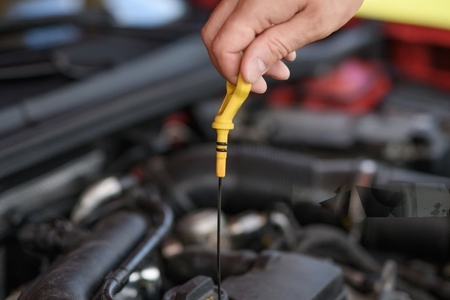Top Reasons Why Car Smells Like Rotten Eggs
If you’ve ever been greeted by a foul and unpleasant odor reminiscent of rotten eggs when you enter your car, you’re not alone. This unsettling odor is more than just an inconvenience; it can be a sign of underlying issues that need attention.
In this article, we will explore the top reasons why your car may smell like rotten eggs. Furthermore, we will provide you with actionable solutions to eliminate the odor. Whether you’re a car enthusiast or just a daily commuter, understanding the causes and remedies for the dreaded rotten egg smell is essential for maintaining a pleasant driving experience.
Top Reasons for Rotten Egg Smell in Your Car
Hydrogen Sulfide Gas
The primary reason for the rotten egg smell in your car is the presence of hydrogen sulfide gas. This gas is a colorless, highly toxic, and flammable compound that has a characteristic odor similar to rotten eggs.
It’s produced during the combustion process, and its presence in your car’s exhaust system is the main cause of the unpleasant odor. Hydrogen sulfide can be dangerous if inhaled in high concentrations, so addressing the issue is not only about comfort but also safety.
Fuel Mixture Imbalance
A common reason for the smell of rotten eggs in your car is an imbalance in the fuel mixture. When your engine runs “rich,” meaning it’s getting too much fuel compared to the amount of air, it can lead to incomplete combustion.
This incomplete combustion process results in the formation of hydrogen sulfide gas, which is then released through the exhaust system, causing an unpleasant odor. To tackle this issue, you may need to have your engine’s fuel system inspected and tuned to ensure the right fuel-to-air ratio.
Catalytic Converter Issues
Your car’s catalytic converter is a vital component in reducing harmful emissions and neutralizing pollutants from exhaust gases. However, if the catalytic converter is not functioning properly, it can be a major source of the rotten egg smell in your car.
One of the common problems with catalytic converters is a buildup of sulfur compounds on the catalyst surface, leading to the production of hydrogen sulfide gas. This can occur due to engine misfires, poor-quality fuel, or simply the natural aging of the converter.
Fuel Quality Matters
The quality of the fuel you use can also cause your car to smell awful. Low-quality or contaminated fuel can contain higher levels of sulfur, which when burned, results in the production of hydrogen sulfide gas.
To prevent this issue, always opt for reputable fuel providers that offer cleaner, low-sulfur fuels. Additionally, avoid storing fuel in your car for extended periods, as it can deteriorate and produce foul odors.
Stale Fuel in the Tank
Leaving your car parked for an extended period can lead to stale fuel in the tank, which can contribute to the car smelling like a rotten egg. Over time, gasoline can break down and become less stable, forming compounds that release unpleasant odors, including hydrogen sulfide gas.
To prevent this issue, consider using fuel stabilizers when storing your vehicle for an extended period. Moreover, it’s a good practice to run the car for a short period or take it for a short drive occasionally to circulate the fuel in the tank.
Sewer or Rotten Food Odor
Sometimes, what you perceive as a rotten egg smell in your car may not actually be related to the car itself. It’s possible that the odor is coming from external sources, such as a nearby sewer or rotting food.
These external odors can find their way into your car through the ventilation system, creating an unpleasant driving experience. If you suspect an external source is the cause, it’s essential to identify and address the issue, whether it’s a nearby sewer problem or forgotten food in your car.
Mold and Mildew Growth
Moisture is often an overlooked factor in creating a foul smell in your car. If your car’s interior remains damp or experiences water leaks, it can promote the growth of mold and mildew. These microorganisms release volatile compounds that can produce a foul odor, which may be mistaken for a rotten egg smell.
Resolving the Issue
Now that we’ve explored the various reasons behind the smell of rotten eggs in your car let’s discuss how to get rid of the egg smell in the car. This can help you enjoy a pleasant driving experience once again.
Regular Maintenance
To address fuel mixture imbalances, catalytic converter issues, and stale fuel problems, regular maintenance is key. Schedule routine inspections with a qualified mechanic who can fine-tune your engine, check the catalytic converter’s health, and ensure the fuel quality in your tank is up to par.
Use High-Quality Fuel
Opt for high-quality fuel from reputable providers to reduce sulfur content and minimize the chances of hydrogen sulfide gas production. Choosing cleaner fuel options can significantly improve your car’s overall performance and reduce unpleasant odors.
Seek Professional Help
If you suspect external sources or sewer odors are entering your car, consider consulting with professionals. They can help identify and rectify the issue. Additionally, if you’re unable to pinpoint the problem or resolve it yourself, don’t hesitate to seek assistance from a qualified mechanic.
Tips To Keep Your Car Smelling Fresh
A fresh-smelling car is a more enjoyable and comfortable space, whether you’re commuting to work, embarking on a road trip, or running errands around town. Following are some additional tips to help you create a welcoming and refreshing car environment that enhances your driving experience.
Use Air Fresheners
Air fresheners are a popular and effective way to maintain a fresh scent in your car. Choose from a variety of air freshener options, including hanging or vent-mounted air fresheners, sprays, or scent diffusers.
Opt for scents that you find appealing, but avoid overloading your car with strong fragrances, as they can be overwhelming. It’s best to use air fresheners in moderation to achieve a pleasant but not overpowering aroma.
Keep the Cabin Air Filter Clean
Many modern cars are equipped with cabin air filters that help purify the air entering the cabin. Regularly check and replace the cabin air filter as recommended by your vehicle’s manufacturer. A clean filter will help ensure the air inside your car remains fresh by reducing the presence of dust, pollen, and other airborne particles that can contribute to odors.
Remove Trash Promptly
Dispose of trash and waste promptly. Avoid allowing empty food containers, coffee cups, and other garbage to accumulate in your car. Use a small trash bag or container to collect and easily dispose of waste. Be mindful of the cleanliness of your car’s trunk or cargo area, as overlooked trash there can also contribute to unwanted odors.
Odor Absorbers
Consider using odor absorbers to help eliminate unwanted smells. Charcoal-based products, such as activated charcoal bags, can absorb and neutralize odors effectively. Place these bags in various areas of your car, like the glove compartment, under the seats, or in the trunk. Additionally, baking soda is a natural odor absorber that can be sprinkled on carpets and upholstery, left for a short period, and then vacuumed up.
Prevent Mold and Mildew
To prevent the growth of mold and mildew, keep your car dry. Fix any leaks that may allow water to enter the vehicle, and use moisture-absorbing products or desiccants to maintain a dry interior. Clean and dry your car’s floor mats and carpets regularly, as moisture can become trapped beneath them. As a result, it promotes mold and mildew growth.
Regular Car Wash
Washing your car on a regular basis not only maintains its exterior appearance but also helps prevent the development of unpleasant odors. Road grime, dirt, and residue from environmental factors can accumulate on the exterior and make their way into the car. A clean exterior reduces the risk of these contaminants causing unwanted smells inside.
Regularly clean upholstery
Clean the car’s upholstery and interior surfaces to remove any spills, stains, and odors. Use appropriate cleaning products for your car’s materials (e.g., leather, fabric, vinyl).
Avoid smoking in the car
If you’re a smoker, try to refrain from smoking in the car. Smoking leaves behind strong odors that can be difficult to remove. If you must smoke, do so with the windows down and use an ashtray.
also read: Common problems after engine replacement
Conclusion
A rotten egg smell in your car can be both discomforting and potentially dangerous, depending on its underlying cause. By understanding the common reasons behind this odor and following the provided solutions, you can ensure your car smells fresh.
Routine maintenance and proper ventilation, among other suggestions, can all contribute to eliminating the unpleasant smell. So, the next time you step into your car, enjoy the clean and odor-free driving experience you deserve.




